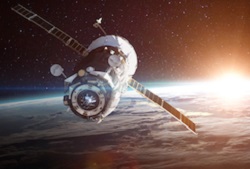Re-thinking environmental management techniques
It is imperative for environmental survival that resource and energy usage are reduced. This project built upon the techniques used in the past to achieve this goal. Traditional methodologies for environmental protection in resource and energy issues aimed at improving technologies and their efficiency, rethinking governmental legislation, and designing market incentives and information campaigns for consumers. On the other hand, this project empirically analysed opportunities and impediments to attaining environmental protection goals and came to the conclusion that drawing on the immense capabilities of infrastructure networks to help the environment will, in the future, rely on comprehending the exact nature of how infrastructure management is moulded by actor logics, decision-making processes, and local situations and contexts. In essence, this project concerns the alteration of traditional methods of energy and resource usage as shaped by urban utility services for water, electricity, sewage and solid waste. Rethinking environmental protection techniques is essential in the current socio-political context as utility companies throughout Europe have to adjust to various complex forces such as liberalisation, new state funding, and consumer awareness in terms of service quality and cost. Furthermore, this project analysed and built upon concepts about sustainable urban development, material flow management, liberalisation of utility service, and the developments of infrastructure systems. In fact, these researchers further developed these concepts in four ways. Firstly, the project raises awareness of the hitherto unused capabilities of urban infrastructure networks to enhance the quality of the environment and helps make urban and regional development sustainable. Secondly, the researchers analysed and showed how material and energy flow management is influenced by a vast array of political, commercial, environmental and social factors. The project also highlighted the need to understand these factors in specific contexts. Also, this project examined the possibilities for new methods of environmental protection that are being created due to reconfiguration of utility services, and precisely how these new possibilities could be taken advantage of in the most optimal way. Lastly, the researchers analysed how large infrastructure networks react and adapt to new situations, including novel environmental technologies. Perhaps studying the current situation by using new points of view as described in this project, could lead to environmental protection that reaches new levels of effectiveness and efficiency.







